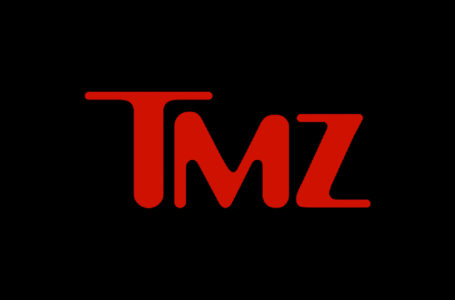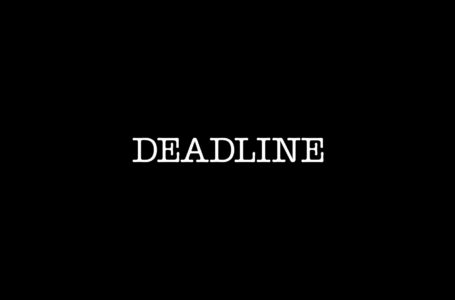When Everyone’s a Publisher, Defamation Standards Cause Legal Landmines; Rethinking ‘Scumbag’ Before Hitting Send
What do a celebrity rocker, a personal injury lawyer and a life-size hamster toy have in common? A World Wide Web of potential liability.
Los Angeles rocker Courtney Love is currently facing what observers are calling the first Twitter-libel suit, brought by a fashion designer she bad-mouthed using the service.
Thomas Howard Clark Jr., a partner at Ropers Majeski Kohn & Bentley in San Francisco was recently sued after posting a YouTube rant warning potential plaintiffs about the ‘scam artists’ behind a dietary supplement.
And this month, the consumer site GoodGuide questioned the toxicity level of the popular Mr. Squiggles hamster toy, but apparently used the wrong standard. A lawyer for the toy manufacturer said it hasn’t ruled out going to court after the Christmas season.
Those are just a few hotly tracked cases that lawyers said highlight how recent technologies, like text-messages, blog posts, and Twitter ‘tweets’ are exposing Internet users to defamation claims more than ever before.
‘Once you hit the send button, you may have done enough to create a cause of action,’ said David Heller, an attorney with the Media Law Resource Center in New York.
That’s because old laws related to slander and libel are being applied to new media, and the case law has not caught up, Heller said. His group tracks blogger lawsuits across the country and advocates for free speech.
‘Technology now allows virtually anyone to be a publisher and media libel law developed over the last 50 years [for] the professional press,’ he said. ‘Courts are having to feel their way around how those old rules will apply in the blogging context.’
Best estimates indicate that the number of lawsuits over online speech has risen sharply from a handful to more than a hundred in just a couple years.
Only 13 lawsuits were filed nationwide over online speech in 2001, according to preliminary data by the Citizen Media Law Project at Harvard Law School. Last year, 114 lawsuits were counted and another 50 were recorded from January to August of 2009.
Although it remains unclear how many of those cases plaintiffs actually win, several sources said cases where a company or individual incurred financial damages as a result of a post or tweet had much better chances of succeeding.
The majority of these lawsuits stem from defamation claims against individuals, lawyers said, rather than the sites where the statements were posted.
That’s partly because courts have rules that Internet providers are Web site hosts are largely shielded from liability for defamatory content their users post. That has protected sites of Yelp, Craig’s List and Twitter from a torrent of lawsuits.
In California, the state’s anti-SLAPP law (which stands for strategic lawsuits against public participation) has also been used to fend off individual libel claims stemming from speech on issues of ‘public importance.’
But not everything falls under that category of public discourse.
Courtney Love found that out in October, when a Los Angeles Superior Court judge denied a special motion to dismiss the case against her by celebrity designer Dawn Simorangkir.
Love commissioned the Texas-based designer to create custom clothing, flying her out to Los Angeles to giver her specialty materials.
When the two had a falling out over prices, Simorangkir allegedly kept the clothes. Love retaliated by posting 38 statements to MySpace and Twitter, calling the designer ‘felonious’ and said she’d be ‘hunted till your dead,’ according to court records. Love also authored three comments on the retail Web site Etsy, warning potential customers she was a ‘total scumbag, lying rip-off’ and a drug addict, the complaint said.
Simorangkir accused Love in the lawsuit of ‘using her influence to reach millions of people’ through tweets and blog posts to destroy the designer’s small business. The judge has so far allowed the case to proceed.
Bryan Freedman, the attorney representing Simorangkir, said he expects Twitter to spur many more lawsuits because it has so many high-profile and celebrity users who use it to broadcast gossip in real time and limited word-length.
‘Twitter is so instantaneous that with only 140 characters you have to get your punch in right away,’ said Freedman, who has also defended celebrities like Hollywood blog mogul Perez Hilton against Internet libel complaints.
Bryan Freedman said.
‘It’s possible someone can apologize or change what they said. But its unlikely because the people who are on Twitter… are less likely to respond in a way that limits their liability.’
Plaintiff’s attorneys, on the other hand, are not typically cavalier about exposing themselves to liability.
Still, class action lawyer Thomas Howard Clark Jr. found himself on the other side of litigation this November, after he posted a nine-minute video on YouTube soliciting potential class members for a lawsuit against the maker of Procera AVH, a supplement claiming to improve brain function.
According to the complaint, Clark says in the video that the supplement’s advertising is ‘bogus’ and that the pills’ manufacturer, MedHealth, ‘don’t care if you live or die.’
In a complaint filed in San Francisco Superior Court, MedHealth argues that Clarke should be held liable for broadcasting false and defamatory claims on YouTube, which it called an ‘international Internet platform.’
Clark directed questions about the lawsuit to his attorney, who did not return calls for comment.
Some lawyers who specialize in Internet liability issues said individual bloggers were the most vulnerable to defamation lawsuits.
‘The go-it-alone bloggers are maybe the most vulnerable because they are the least likely to be cognizant of the repercussions of making such statements,’ said Jennifer T. Taggart, a partner at Demetriou, Del Guercio, Springer & Francis in Los Angeles.
Taggart, who advises companies on Internet issues, said she was particularly disturbed by the recent incident with the Mr. Squiggles toy.
On December 5, the GoodGuide consumer Web site posted an announcement calling into question the levels of a chemical present in the Mr. Squiggles character of the popular Zhu Zhu hamster toy line.
Being a lawyer in this area of consumer safety, Taggart quickly realized the consumer group was mixing up the standard for levels of the chemical, antimony. Although she has no connection with the manufacturer, St. Louis-based Cepia, Taggart said she posted her own messages on Twitter to try to combat the negative report.
‘The statements weren’t true,’ she said. ‘It seems like a clear case of defamation.’
GoodGuide made an online correction to its original statement two days later, explaining that it stood by its test, but had confused the FDA’s standard with a more stringent standard for surface-level toxicity. The group declined to comment for this story.
Phil Kaplan, a St. Louis attorney for the toy maker, said he believed the correction did not reach the same number of people who received the press blast that Mr. Squiggles was toxic. No legal action will be decided on until after the Christmas season, he said.
Roy E. Hadley, a technology law attorney at Bryan Cave in Atlanta, said he believed liability is much greater with the new technology because users are less conscious of their words at the same time as the medium makes their damage more lasting.
‘Once you hit the send button whether it’s e-mail, Twitter, something on your Facebook, you have lost control of how that information can be disseminated,’ Hadley said. ‘Text messages have been used in corporate cases to show insider trading, divorce proceeding – they are used as evidence.’
Hadley added that the current controversy over Tiger Woods’ alleged infidelities seem to have been confirmed because text messages only disappear if the receiver deletes them.
He and several other lawyers said they recommend any regular blogger consider liability insurance. Offered by several U.S. companies, the insurance typically covers slander, libel, invasion of privacy and other defamation claims that traditional media has had to worry about. Such insurance will cover the legal costs that can otherwise put a blogger out of business regardless of a complaints’ merits.
Meanwhile, cases like Simorangkir v. Love and others are likely to spur public discussion on whether Internet users should be held responsible for online speech, said Heller, of the Media Law Resource Center.
‘That goes to judges, and courts, and the public about how they are going to understand this freewheeling speech on the internet.’




